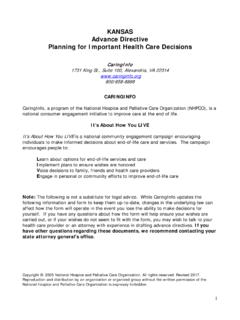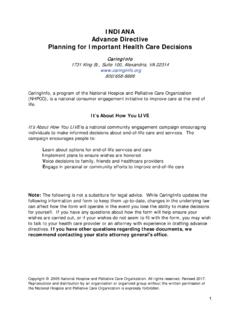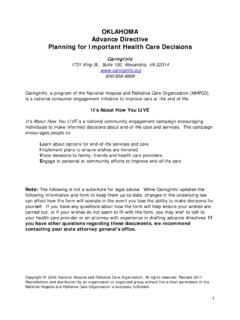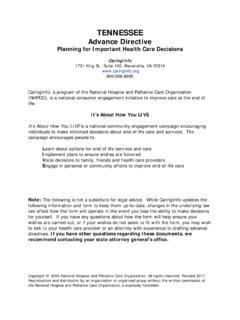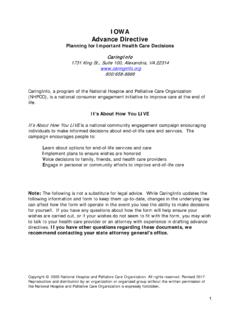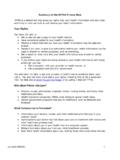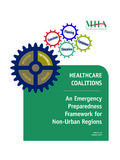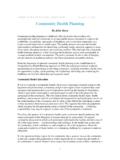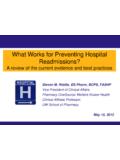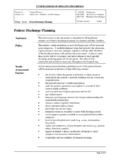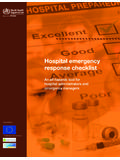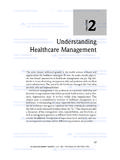Transcription of Understanding Advance Directives - Caring Inc
1 Understanding Advance Directives What are Advance Directives ? Advance Directives are legal documents that allow you to plan and make your own end-of- life wishes known in the event that you are unable to communicate. Advance Directives consist of (1) a living will and (2) a medical (healthcare) power of attorney. A living will describes your wishes regarding medical care. With a medical power of attorney you can appoint a person to make healthcare decisions for you in case you are unable to speak for yourself. What is a living will? A living will is an Advance directive that guides your family and healthcare team through the medical treatment you wish to receive if you are unable to communicate your wishes. According to your state's living will law, this document is considered legal as soon as you sign it and a witness signs it, if that's required. A living will goes into effect when you are no longer able to make your own decisions.
2 What is a medical power of attorney? A medical power of attorney is the Advance directive that allows you to select a person you trust to make decisions about your medical care if you are temporarily or permanently unable to communicate and make decisions for yourself. This includes not only decisions at the end of your life, but also in other medical situations. This document is also known as a healthcare proxy, appointment of healthcare agent or durable power of attorney for healthcare. This document goes into effect when your physician declares that you are unable to make your own medical decisions. The person you select can also be known as a healthcare agent, surrogate, attorney-in-fact or healthcare proxy. Who should I select to be my medical power of attorney? You should select someone you trust, such as a close family member or good friend who understands your wishes and feels comfortable making healthcare decisions for you.
3 You should have ongoing conversations with this person to talk about your wishes at the end of life. Make sure your medical power of attorney feels comfortable and confident about the type of medical care you want to receive. Most state laws prevent your doctor or any professional caregiver from being assigned as your healthcare agent. You can also select a second agent as an alternate in case your first healthcare agent is unwilling or unable to serve. CaringInfo 2016 National Hospice and Palliative Care Organization Understanding Advance Directives What do I need to know about end-of-life decisions to prepare my Advance directive ? Learn about life-sustaining treatments Life-sustaining treatments are specific medical procedures that support the body and keep a person alive when the body is not able to function on its own. Making the decision about whether or not to have life-sustaining treatments can be a difficult decision depending on your situation.
4 You might want to accept life-sustaining treatments if they will help to restore normal functions and improve your condition. However, if you are faced with a serious life- limiting condition, you may not want to prolong your life with life-sustaining treatment. The most common end-of-life medical decisions that you, family members or an appointed healthcare agent must make involve: Cardiopulmonary Resuscitation (CPR). Do Not Resuscitate Order (DNR). Do Not Intubate Order (DNI). Artificial Nutrition and Hydration What is cardiopulmonary resuscitation (CPR)? Cardiopulmonary resuscitation (CPR) is a group of procedures used when your heart stops (cardiac arrest) or breathing stops (respiratory arrest). For cardiac arrest the treatment may include chest compressions, electrical stimulation or use of medication to support or restore the heart's ability to function. For respiratory arrest treatment may include insertion of a tube through your mouth or nose into the trachea (wind pipe that connects the throat to the lungs) to artificially support or restore your breathing function.
5 The tube placed in your body is connected to a mechanical ventilator. What are Advance Directives ? A Do Not Resuscitate (DNR) order is a written physician's order that prevents the healthcare team from initiating CPR. The physician writes and signs a DNR at your request or at the request of your family or appointed healthcare agent if you do not want to receive CPR in the event of cardiac or respiratory arrest. The DNR order must be signed by a doctor otherwise, it cannot be honored. DNR orders: Can be cancelled at any time by letting the doctor who signed the DNR know that you have changed your decision. CaringInfo Remain in effect if you transfer from one healthcare facility to another. However, consult the arrival facility's policy to make sure. Also, the DNR may not be honored if you are discharged from the facility to your home if your state does not have an out-of-hospital DNR policy. May not be honored during surgery but this is something very important to discuss with your surgeon and anesthesiologist before surgery so your wishes are honored.
6 Should be posted in the home if that is where you are being cared for. If there is no DNR order, the healthcare team will respond to the emergency and perform CPR. The team will not have time to consult a living will, the family, the patient's healthcare agent or the paient's doctors if they are not present. What is a Do Not Intubate (DNI) order? When you request a DNR order, your physician may ask if you also wish to have a do- not-intubate order. Intubation is the placement of a tube into the nose or mouth in order to have it enter your windpipe (trachea) to help you breathe when you cannot breathe adequately yourself. Intubation might prevent a heart attack or respiratory arrest. Refusal of intubation does not mean refusal of other techniques of resuscitation. If you do not want mechanical ventilation (breathing), you must discuss intubation because it may be included as part of a DNR order. Even if you have completed a DNR order that does not mean that you have refused to be intubated.
7 If you do not want life mechanically sustained, you must discuss your decision about intubation with your doctor. What is artificial nutrition and hydration? Artificial nutrition and hydration are treatments that allow a person to receive nutrition (food) and hydration (fluid) when they are no longer able to take them by mouth. This treatment can be given to a person who cannot eat or drink enough to sustain life. When someone with a serious or life-limiting illness is no longer able to eat or drink, it usually means that the body is beginning to stop functioning as a result of the illness. How can I prepare my Advance directive ? You can fill out a living will and medical power of attorney form without a lawyer. The National Hospice and Palliative Care Organization, your state hospice organization, local hospitals, public health departments, state bar associations or state aging offices provide state-specific forms and instructions.
8 It is very important that you use Advance directive forms specifically created for your state so that they are legal. Read the forms carefully and make sure you follow legal requirements determined by your state. You may need to have a witness signature and get the forms notarized (signed by a notary public.). Keep your completed Advance directive in an easily accessible place and give photocopies to your primary medical power of attorney and your secondary, alternate agent. This document stays in effect unless you cancel it or decide to complete a new one with changes. 2016 National Hospice and Palliative Care Organization Understanding Advance Directives C. an healthcare professionals refuse to honor my Advance directive ? Some healthcare professionals may choose to ignore what is written in your living will if they believe that what is written is against your best interest or for moral or religious reasons. In some cases there may be a misunderstanding of the law, medical ethics or professional responsibilities.
9 It is important for you to know if your doctor will honor your request. Bring your completed living will to your next healthcare appointment and ask your doctor if he or she has questions or concerns. Who would decide about my medical care if I did not complete an Advance directive ? If you are unable to make decisions, healthcare professionals must consult your family members. Some states have decision-making laws to identify individuals who may make decisions on your behalf when you do not have an Advance directive , such as your spouse, parents or adult children. D. oes my Advance directive include my wishes about organ donation, cremation or burial? Some states may include your wishes about whether you want to be an organ donor as part of the Advance directive . If it is not included, you can still write down your decision about organ donation. However, you should fill out a specific form for that purpose. You should also let your loved ones know if you wish to be buried or cremated.
10 CaringInfo Consumer InfoLine: 800-658-8898. Multilingual InfoLine: 877-658-8896. 2016 National Hospice and Palliative Care Organizatio
